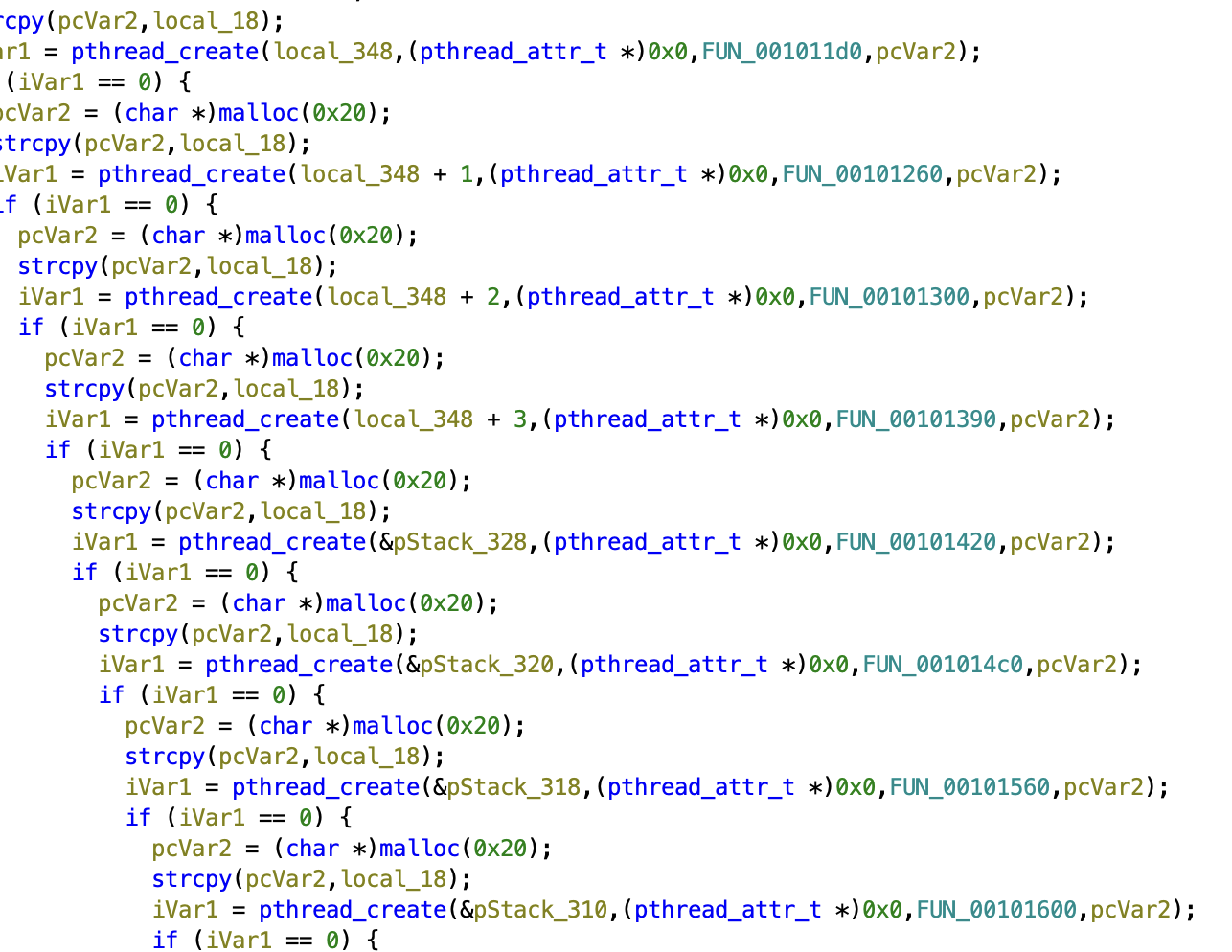Expr [Binary]
Solve for flag checker that uses multithreading for flag check routine.
Challenge Description
(Lost it :P)
Investigation
This program spawns over 100 threads to run different subroutines that does some condition checking. Doing this by hand is just pain, so I wanted to use Angr to solve this symbolicly. Since Angr doesn’t have multithreading support, I’ll export the decompilation and override the pthread_create to run the functions sequentially instaed of in threads.

All threads have to pass their respective conditions (and release their mutex) to pass the flag check as a whole.
Solution
I exported the program in Ghidra by File > Export Program....
I cleaned up the code by removing unused definitions and redefinitions. The overriding definition of pthread_create is
/*
* Usage:
* iVar1 = pthread_create(&pStack_2b0,(ulong *)0x0,
* FUN_00101d60,pcVar2);
*/
int pthread_create(pthread_t *thread, ulong *attr, undefined8 (*func_ptr)(long), char *arg) {
return (*func_ptr)((long) arg);
}
And the subroutine functions are changed by search and replace:
undefined8 FUN_001011d0(long param_1)
{
uint uVar1;
// pthread_mutex_lock((pthread_mutex_t *)&DAT_0010c070);
uVar1 = *(uint *)(param_1 + 0x1b) >> 2 & 0x7ff;
if (((uVar1 >> 2 ^ 0x557) + (uVar1 * 0x40 + 0x10c ^ (*(uint *)(param_1 + 0x14) & 0x7ff) >> 6) &
0x7ff) == 0x79d) {
// pthread_mutex_unlock((pthread_mutex_t *)&DAT_0010c070);
return 0;
}
// return 0;
return 1;
}
Comments show the original code that was removed.
Finally, we just run the good-ol Angr script from angr_ctf.
Final Script
import angr
import claripy
import sys
def main(argv):
path_to_binary = argv[1]
project = angr.Project(path_to_binary)
initial_state = project.factory.entry_state(
add_options = { angr.options.SYMBOL_FILL_UNCONSTRAINED_MEMORY,
angr.options.SYMBOL_FILL_UNCONSTRAINED_REGISTERS}
)
simulation = project.factory.simgr(initial_state)
def is_successful(state):
stdout_output = state.posix.dumps(sys.stdout.fileno())
return 'pass'.encode() in stdout_output
def should_abort(state):
stdout_output = state.posix.dumps(sys.stdout.fileno())
return 'failed'.encode() in stdout_output
simulation.explore(find=is_successful, avoid=should_abort)
if simulation.found:
solution_state = simulation.found[0]
print(solution_state.posix.dumps(sys.stdin.fileno()).decode())
else:
raise Exception('Could not find the solution')
if __name__ == '__main__':
main(sys.argv)
